Glory to Jesus Christ!
Sunday, 4/10, Pussywillow (Flowering) Sunday — Blessing of Pussywillows and anointing
8:45 a.m. Lytija and blessing of Bread
9:00 a.m. +Menya Stacken requested by Judy Ellis —Parish mission preached
10:30 a.m. For the people of the parish
Epistle: Philippians 4:4-9
Gospel: John 12:1-18, Tone 5
Monday, 4/11, Holy Priest Martyr Antipas
9:00 a.m. God’s blessing and health for Maria Wysowskyj requested by the Sestretsi
Tuesday, 4/12, Our Venerable Father Basil
9:00 a.m. +Candace Brezicki
Wednesday, 4/13, Holy Priest Martyr Artemon
9:00 a.m. Divine Liturgy of the Presanctified Gifts
Thursday, 4/14, Holy and Great Thursday
7:00 p.m. Matins with the Passion Gospels
Friday, 4/15, Holy and Great Friday
4:00 p.m. Vespers and Veneration of the Holy Shroud
Saturday, 4/16, Holy and Great Saturday
9:00 Divine Liturgy
4:00 p.m. Blessing of Easter Foods
6:00 p.m. Blessing of Easter Foods
7:00 p.m. Prayers at the Tomb
Sunday, 4/17, Holy and Great Resurrection of the Lord and Savior Jesus Christ
9:00 a.m. Procession and Paschal (Easter) Matins —Blessing of Arts (bread)
10:30 a.m. For the people of the parish —Anointing
Blessing of Easter Foods following the Divine Liturgy in the church hall
Epistle: Acts 1:1-8
Gospel: John 1:1-17, Tone 1
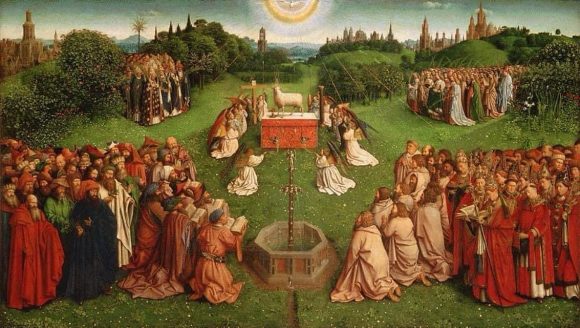
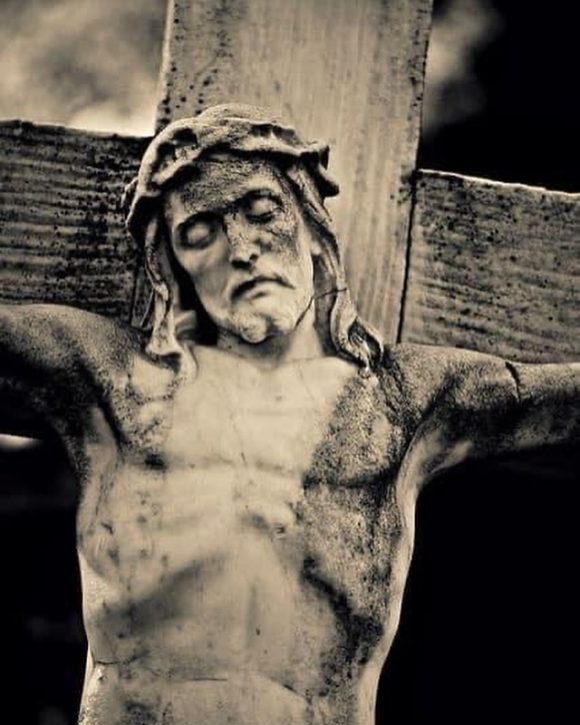
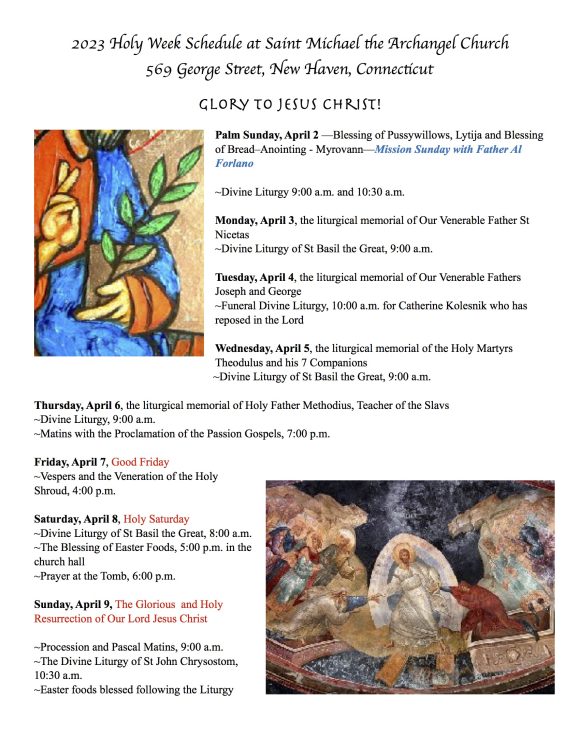
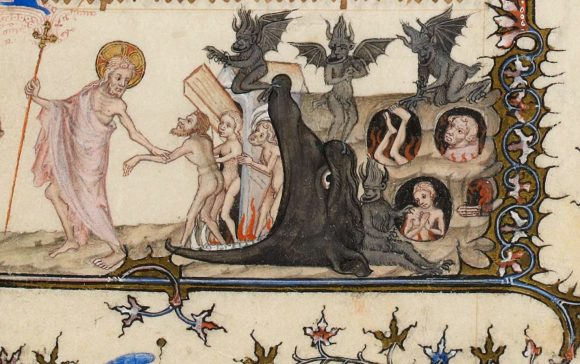
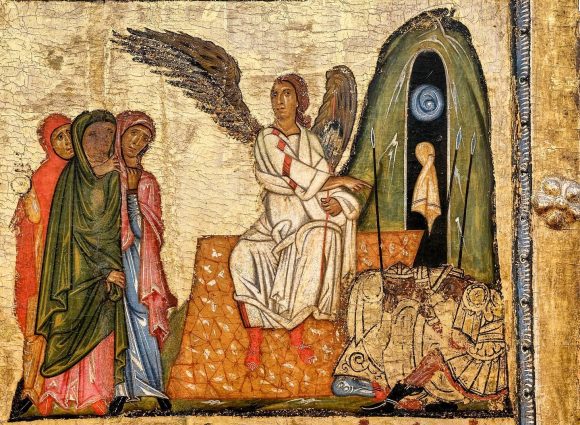

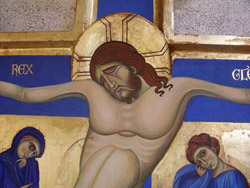
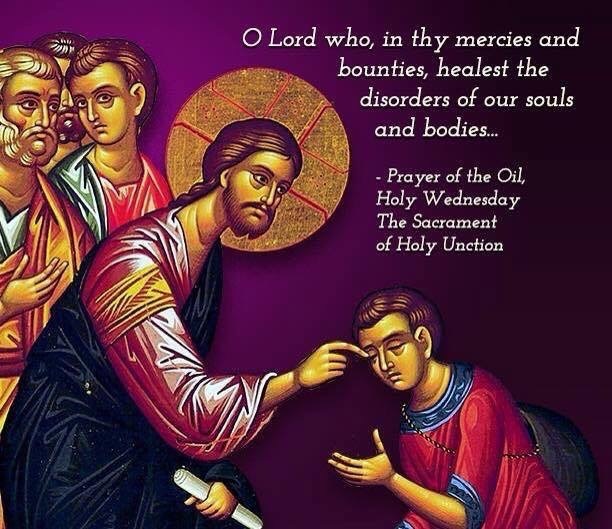 Most of us will not be able to participate in this rite personally this year but we can still pray. In a special way let us pray for all afflicted with the corona virus.
Most of us will not be able to participate in this rite personally this year but we can still pray. In a special way let us pray for all afflicted with the corona virus.